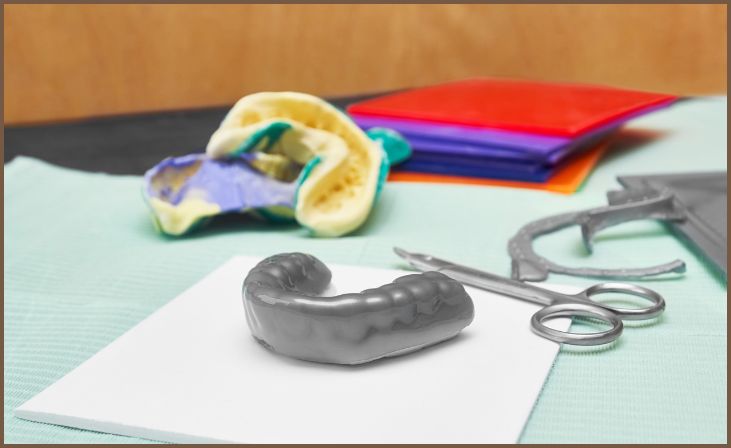The Power of Prevention: 8 Early Steps for Lifelong Dental Wellness – Welcome to our guide on the power of prevention in achieving lifelong dental wellness. Taking proactive steps to maintain oral health is essential for preserving your smile and overall well-being. By prioritizing prevention, you can avoid common dental issues, such as cavities, gum disease, and tooth loss, ensuring a lifetime of healthy teeth and gums.
In this comprehensive guide, we’ll explore the early steps you can take to promote dental wellness, from establishing good oral hygiene habits to attending regular dental check-ups. By understanding the importance of preventive care and adopting healthy lifestyle choices, you can safeguard your oral health and minimize the need for costly and invasive dental treatments down the road.
The Power of Prevention: 8 Early Steps for Lifelong Dental Wellness
Understanding the Importance of Prevention

Understanding the importance of prevention is key to achieving lifelong dental wellness. Prevention is the foundation of good oral health and involves adopting healthy habits and behaviors to protect your teeth and gums from common dental problems such as cavities, gum disease, and tooth loss. By taking proactive steps to prevent dental issues before they arise, you can maintain a healthy smile and reduce the need for costly and invasive dental treatments in the future. Prevention not only saves you time and money but also helps preserve your natural teeth and promote overall well-being.
Also Read: Beyond the Dental Chair: Lifestyle Factors Impacting Oral Health
Establishing a Consistent Oral Hygiene Routine
Establishing a consistent oral hygiene routine is essential for maintaining optimal dental health throughout life. Brush your teeth twice a day using fluoride toothpaste and a soft-bristled toothbrush to remove plaque and bacteria from tooth surfaces and along the gumline. Additionally, floss between your teeth daily to remove food particles and plaque from areas that your toothbrush cannot reach. Consider using antimicrobial mouthwash to help reduce bacteria and freshen your breath. By prioritizing regular brushing, flossing, and rinsing, you can prevent plaque buildup, cavities, and gum disease.
Choosing the Right Dental Products

Choosing the right dental products can make a significant difference in your oral health outcomes. Select toothpaste and mouthwash containing fluoride to strengthen tooth enamel and protect against cavities. Look for toothbrushes with soft bristles and a comfortable grip to ensure gentle and effective cleaning. Consider using interdental brushes, water flossers, or dental picks for cleaning between teeth and along the gumline, especially if you have tight spaces or orthodontic appliances. Consult with your dentist or dental hygienist for recommendations on dental products tailored to your specific needs and preferences.
Maintaining a Nutritious Diet
Maintaining a nutritious diet is essential for supporting overall health and promoting dental wellness. Limit your consumption of sugary and acidic foods and beverages, as these can contribute to tooth decay and erosion of tooth enamel. Instead, focus on eating a balanced diet rich in fruits, vegetables, whole grains, lean proteins, and dairy products. Foods high in calcium, phosphorus, and vitamin D help strengthen tooth enamel and promote remineralization, while crunchy fruits and vegetables stimulate saliva production and help cleanse the mouth. By fueling your body with nutritious foods, you can support strong teeth and gums and reduce the risk of dental problems.
Drinking Plenty of Water

Drinking plenty of water is essential for maintaining optimal hydration and supporting saliva production, which plays a crucial role in oral health. Saliva helps rinse away food particles, neutralize acids, and remineralize tooth enamel, reducing the risk of cavities and gum disease. Aim to drink fluoridated water throughout the day, as fluoride helps strengthen tooth enamel and protect against cavities. Consider using a reusable water bottle to stay hydrated while on the go and minimize your consumption of sugary and acidic beverages that can contribute to dental problems.
Avoiding Tobacco and Alcohol Use
Avoiding tobacco and alcohol use is essential for protecting your oral health and reducing the risk of serious dental problems such as gum disease, oral cancer, and tooth loss. Tobacco products, including cigarettes, cigars, and smokeless tobacco, contain harmful chemicals that can irritate gum tissues, stain teeth, and increase the risk of periodontal disease and oral cancer. Similarly, excessive alcohol consumption can dry out the mouth, decrease saliva production, and contribute to tooth decay and gum disease. By abstaining from tobacco and moderating alcohol intake, you can safeguard your oral health and overall well-being.
Using Protective Mouthguards

Using protective mouthguards is essential for preventing dental injuries during sports activities and nighttime teeth grinding. Custom-fitted mouthguards provide cushioning and protection against impact to the mouth and jaw, reducing the risk of broken or knocked-out teeth, lip injuries, and jaw fractures. Wear a mouthguard whenever participating in contact sports such as football, basketball, hockey, and soccer, as well as activities with a risk of falls or collisions. Additionally, consider wearing a nightguard if you grind or clench your teeth while sleeping, as this can help prevent tooth wear, jaw pain, and other dental problems associated with bruxism.
Seeking Regular Dental Checkups
Seeking regular dental checkups is crucial for early detection and treatment of dental issues and maintaining optimal oral health. Make an appointment for dental cleanings and exams with your dentist at least twice a year, or more frequently as advised by your specific requirements and risk factors. During dental checkups, your dentist will assess your oral health, perform a thorough examination of your teeth and gums, and identify any signs of dental problems such as cavities, gum disease, or oral cancer. Professional cleanings help remove plaque and tartar buildup from hard-to-reach areas, reducing the risk of dental issues and promoting a healthy smile.
Conclusion
In conclusion, the power of prevention cannot be overstated when it comes to maintaining lifelong dental wellness. By embracing early steps such as regular dental check-ups, diligent oral hygiene practices, and healthy lifestyle choices, you can protect your smile and preserve your oral health for years to come. Investing in preventive care today not only saves you from potential discomfort and expense in the future but also allows you to enjoy the confidence and peace of mind that comes with a healthy, radiant smile. Prioritize prevention, and embark on a journey towards lifelong dental wellness starting today.
FAQs
How often should I visit the dentist for check-ups and cleanings?
It’s recommended to visit the dentist every six months for routine check-ups and cleanings to detect any dental issues early and prevent them from progressing into more serious problems.
What are some preventive measures I can take at home to promote dental wellness?
Practicing good oral hygiene habits such as brushing twice a day, flossing daily, and limiting sugary foods and beverages can help prevent cavities, gum disease, and other dental issues, promoting lifelong dental wellness.
